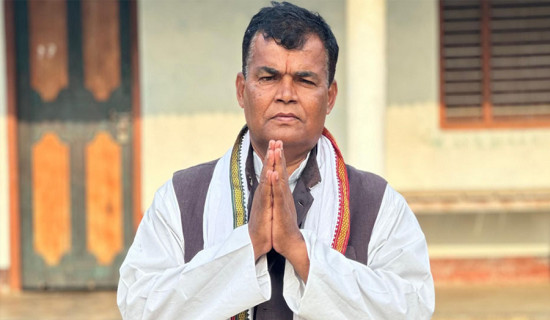- Wednesday, 4 March 2026
Enact Law On The Right To Be Forgotten
In a digital world where most facets of life are documented and shared, personal information control has become increasingly important. Different requests can be made by individuals to call for specific personal data to be erased from the internet, especially when such information is old, irrelevant, or injurious to their reputation. This might encompass the broad concepts of privacy and human decency in general. A clear example of the application of this right is the 2014 ruling by the Court of Justice of the European Union in case Google Spain SL, Google Inc. v. Agencia Española de Protección de Datos (AEPD), Mario Costeja González wherein the High Court validated that Google must erase the links stating that González's name is tagged by some articles by old newspapers, as the information is no longer relevant.
Although the European countries recognize this right, they still struggle to make it happen in Nepal; thus, RTBF remains developing and is often debated in the legal aspect of privacy in digital life. The Constitution of Nepal, which was adopted in 2072, provides several rights, including the Right to Be Forgotten (RTBF). Article 28 gives the Right to Privacy, which states that privacy shall be inviolable concerning a person, his or her person, dwelling, data, and documents, and character, except by the law. Article 17, on the other hand, guarantees the Right to Freedom, which includes freedom of opinion and expression and the right to information that at times negates RTBF - for example, when media coverage opposes an individual's dignity-that needs balancing between personal privacy and freedom of the press.
Right to live with dignity
Article 16 also guarantees the right to live with dignity, which recognises the need for each person to have respect for himself or herself. RTBF enhances this right by allowing people to remove from search engines information that is outdated or no longer relevant. Even though RTBF is something the Constitution does not mention in a direct sense, these fundamental rights will, in a more practical sense, provide some basis for recognizing and applying RTBF into the legal regime in Nepal in the future. There are laws available in Nepal related to privacy and personal data, but none of them have recognised the right of an individual to be forgotten. Section 3 of the Privacy Act 2075 provides the individual with the right to privacy about aspects of their personal life, such as communication, health, and data.
Section 3 states the right, and section 3(4) prohibits the publishing of intimate/private information without consent; yet, this law does not address what happens to anything published earlier. In the same manner, the Electronic Transactions Act 2063 (ETA) deals with issues relating to online activity and cybercrime, but Section 47 makes illegal publication of illegal materials on the internet a crime and further does not stipulate how any person could apply for deletion of personal data.
The National Penal (Code) Act, 2074, is also mentioned in particular Section 293, with offenses against privacy but seems more punitive against perpetrators than rehabilitative for a victim in “removing harmful content.” Section 306 protects against defamation, which may indirectly cover RTBF, where damaging outdated content affects a person's reputation. Hence, while these laws show the country's commitment to privacy, it does not fully conform to the creation of RTBF outside Nepal. Until now, the RTBF has yet to be unaddressed directly by courts. But there have been cases regarding online defamation and privacy breaches, wherein, in some cases, the courts directed the removal of harmful or fallacious content from websites, such as erroneous articles and defamatory videos.
To date, the judiciary has neither accepted nor recognised this individual right of removing one's personal history from the internet. Nevertheless, increasing concern among the legal scholarship and practitioners in Nepal calls for a mature discussion of formally introducing the RTBF into the legal system of the country. To start with, there is no proper legislation specifically defining RTBF or elaborating on how an individual could request the removal of his or her data. Secondly, hurdles are made by technical and financial limitations; often, the judiciary and governmental agencies are short on resources or training to handle such digital rights cases. Awareness is very low; many common people do not even know about their rights to digital privacy and how they can protect their personal information online.
Difficulty
Even if RTBF laws were set up, it would be extremely difficult to enforce them because of jurisdictional and infrastructural constraints, particularly against big tech companies. In societies like Nepal, where reputations and community perceptions matter, any old and hateful content will ruin the grace of a person and damage the individual's position in society. RTBF could open opportunities for people to move on without the connotation of their deeds or faults. More than anything else, the time is now for personal data protection as advancement into e-governance, online studies, and the increasing number of internet users has influenced Nepal toward digitalization. If implemented carefully, RTBF could be very effective in digital justice through the work of and for people to help protect identities and restore their lives in the digital age.
There should be immediate amendments to the existing laws to incorporate the RTBF more explicitly within the purview and procedures for implementation. In the meantime, temporary guidelines can be issued by the government or the Supreme Court for the handling of requests pertaining to RTBF until formal legislation is enacted. Public awareness campaigns shall be launched so that people become aware of their digital rights and ways of exercising them effectively. An equally important factor is that lawyers and technologists must work together in the operationalisation of the RTBF, as it is out of the intertwining of legal considerations and technical implementation.
(Yadav is pursuing B.A.LL.B at Kathmandu School of Law.)















